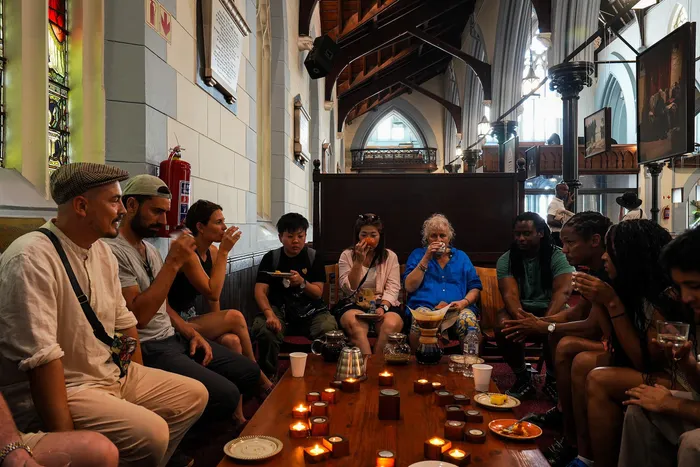How Cape Town’s heritage food tours are making travel more inclusive

Explore Cape Town's city centre through the lens of its diverse local and diaspora culinary heritage.
Image: Supplied
This Heritage Month, conversations about South Africa’s past and future are taking centre stage.
In Cape Town, food is becoming one of the most exciting ways to engage with that history.
The Mother City is experiencing a tourism boom, with visitors from all over the world flocking to its beaches, vineyards and restaurants.
But for many locals, the "Cape Town experience" feels increasingly out of reach.
Rising prices, gentrification and the growing exclusivity of the city's fine dining scene mean that the city’s culinary culture can feel closed off to the people who live there.

Discover the vibrant heritage of Salt River and prepare a Cape Malay feast.
Image: Supplied
That is where Unexplored Cape Town steps in. The local heritage food tour company is on a mission to make tourism more inclusive, more connected and more meaningful.
They call their approach Tourism 2.0, which puts communities and cultural storytelling at the centre of the experience.
“With the current trends in tourism, we cannot pretend tourism is neutral. It either fuels exclusion or it becomes a force for inclusion and positive change,” says founder Dennis Anees Molewa.
“Cape Town is often sold as a dream destination. It is the fine dining capital of Africa. But its history of slavery and its current challenges with inequality tell a far more complex story.”

Explore Cape Town's city centre though the lens of it's diverse local and diaspora culinary history.
Image: Supplied
Unexplored Cape Town’s tours are designed to celebrate that complexity.
Guests can join a cooking class in Salt River, explore Bellville’s vibrant African food culture or take part in two city food tours that weave together cuisine, history and storytelling.
Their newest experience, ‘Two Sides of Cape Town’, is a four-hour walking tour that explores both the formal and informal food economies of the city.
From small, heritage-rich eateries to artisanal culinary spaces, the tour reveals how food is shaping the city’s past and present.
For participant Rifqah Van Schalkwyk, the experience was deeply personal.
“Exploring my home with fresh eyes and taste buds was empowering. Learning about the cuisines and people of Cape Town was not entirely new to me, but the narrative and approach were beautiful and not overly romanticised,” she says.
Each tour partners with small, POC-owned businesses, particularly those run by Cape Malay, Creole and African-diaspora food entrepreneurs.
This ensures that the revenue from tourism stays within the community, helping to support livelihoods and preserve heritage.
Unexplored Cape Town also reinvests 5% of every booking into its African Food Business Fund, which helps small food businesses access equipment and improve operations.
For Molewa, this is the future of travel. “Every plate of food, every story shared and every partnership forged is part of a bigger vision. Tourism should restore dignity, uplift communities and celebrate Cape Town’s diverse culinary heritage from a de-colonial perspective.”
This Heritage Month, Unexplored Cape Town is inviting both locals and visitors to connect with the city in a new way.
These food tours show that every shared meal is an opportunity to celebrate history, culture and togetherness.
Related Topics: